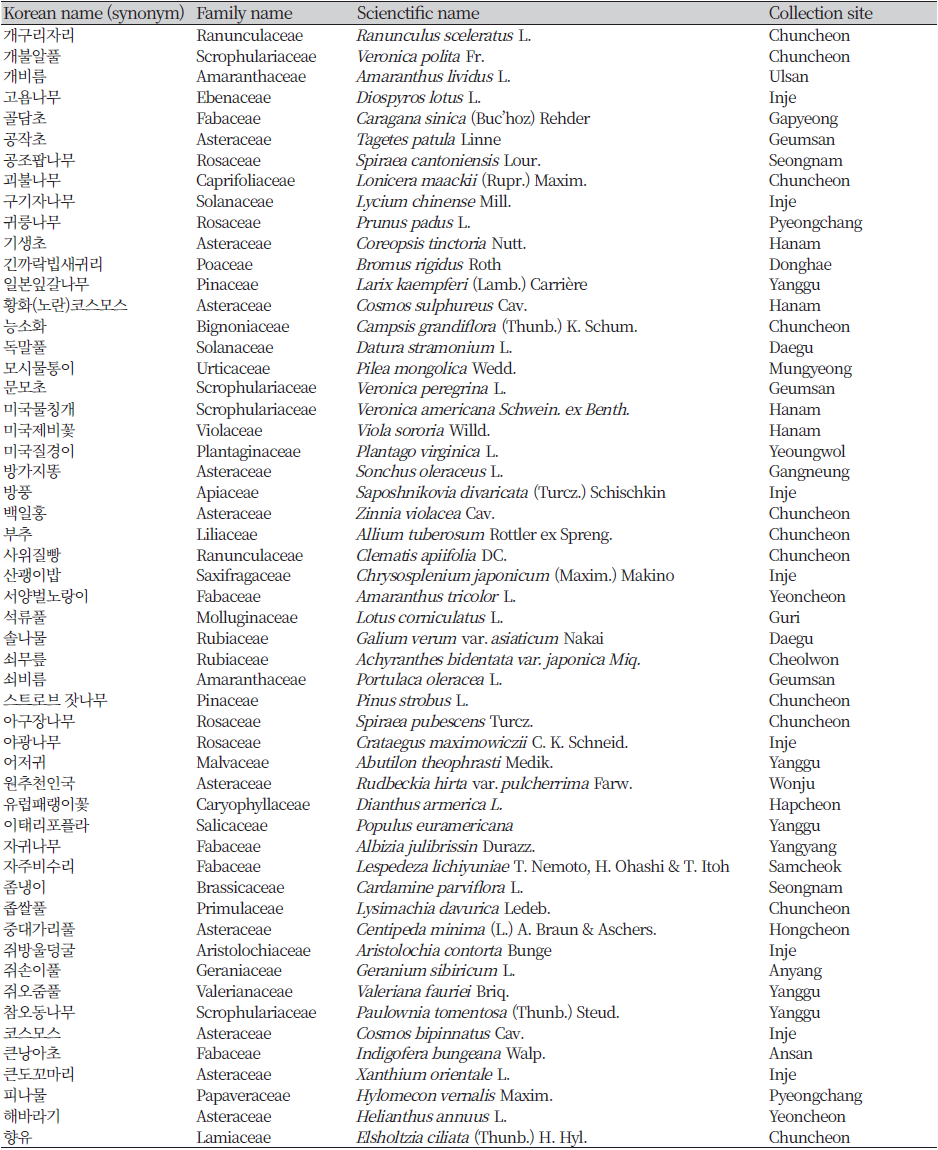Abstract
The authors collected 54 exotic plants in 30 families from all over Korea, made methanol extracts, and performed a seed bioassay with rapeseed (
Figures & Tables

Nam-Kyu Cho1 Ki Hawn Hwang1 Minji Hong2 KeunJung Jang2 Sunhee Hong3 Songmun Kim2,*
1Moghu Research Centre Ltd. Daejeon 34115, Korea
2School of Natural Resources and Environmental Sciences, Kangwon National University, Chuncheon 24341, Korea
3Department of Plant Life and Environmental Science, Hankyung National University, Ansung 17579, Korea
The authors collected 54 exotic plants in 30 families from all over Korea, made methanol extracts, and performed a seed bioassay with rapeseed (
